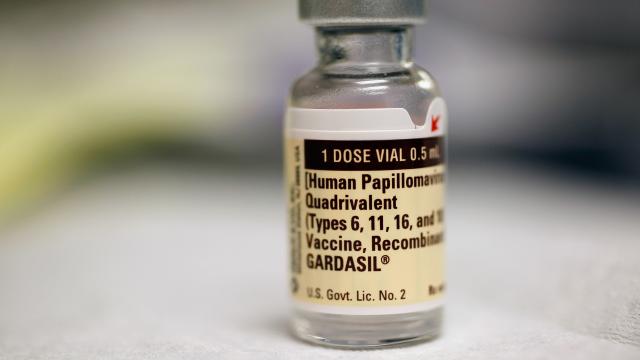The anti-vaccination movement has more than earned its latest round of bad press. The U.S., Madagascar and various other countries are currently dealing with several outbreaks of measles, a disease effectively wiped out by routine childhood vaccination in the country two decades ago. And just this week, Oregon doctors reported that a six-year-old boy had to endure months of excruciating pain because his family had chosen to not vaccinate him for tetanus.
But while many of us fully appreciate the good that vaccines can do and support children getting all their recommended shots, there are actually some vaccines adults should be getting too—but often aren’t.
The most common vaccine you need as an adult is by far the flu vaccine. That’s because the influenza virus quickly mutates, and the vaccine you get one year won’t protect you from the strains of flu you encounter the next. Every year in the U.S., the flu shot (or nasal spray) prevents millions of illnesses, tens of thousands of hospitalizations, and thousands of deaths. Yet while people get rightly upset about antivaxxers, they probably only represent only a small slice of the more than half of American adults who skip the flu vaccine every year.
We referenced tetanus in the beginning, which most children are vaccinated against by the time they reach school. But the series of childhood shots don’t protect us from tetanus for our entire lives. When we reach teenhood, we’re supposed to get the tetanus, diphtheria, pertussis (TDaP) booster shot, but if you’ve missed out, then you should get the TDaP shot as soon as you can. After that, you’ll need to get a tetanus and diphtheria booster every 10 years. If you’ve gotten a nasty scrape or puncture wound and don’t remember the last time you got a tetanus shot, you’ll probably be asked to get one anyway, just to be safe.
Tetanus and measles are diseases that all 50 U.S. states legally require kids to be vaccinated against before they can enter grade school, though parents can obtain an exemption for medical, religious, or personal reasons (the ease of getting an exemption varies from state to state; in light of the current outbreaks of measles, some local lawmakers are pushing to tighten up these loopholes). But there are also certain vaccines you were not required to get as a kid, depending on the state you grew up in.
These can include the hepatitis A and B vaccines, as well as the pneumococcal conjugate vaccine, which fends off strains of bacteria that cause pneumonia. If you’re an unvaccinated adult in a particular risk group, such as a man who has sex with men (for both types of hepatitis) or over the age of 65 (for pneumococcal disease), you’ll probably be told by your doctors to get these shots, too.
There are some shots that young adults might need, like the Serogroup B meningococcal vaccine, which protects from some strains of Neisseria meningitidis that cause a sometimes fatal brain infection called meningitis. Though rare, bacterial meningitis can be more common on college campuses, so in the case of a nearby outbreak you might be told to get the vaccine (some states and colleges are also starting to require this vaccine for all entering students). This vaccine is different from the meningococcal conjugate vaccine, which kids between the ages of 11 to 12 should get, along with a booster at 16.
Another recommended vaccine that many young’uns might miss out on is the human papillomavirus (HPV) vaccine, which can prevent cervical and other cancers caused by the virus. If you’re below the age of 27 for women or below 22 for men, you’re still advised to get it. After that age, you’ve probably already been infected by one of the problem strains of the virus, so… bummer.
It’s not just young adults who get to have all the fun, though. By the time you reach your 50s and 60s, you’re advised to get the shingles vaccine. Shingles is an old childhood friend, since it’s caused by the same virus that causes chickenpox, varicella zoster. This virus can lay dormant for decades after the initial infection, and when it wakes back up, it causes a nasty, debilitating illness called shingles. Though chickenpox is now routinely vaccinated against in children, adults who had the full-blown disease as kids are at much greater risk of developing shingles by their golden years, so they’re the target audience for the vaccine.
Lastly, there are some vaccines you could get as an adult in special situations. If you’re travelling to certain areas of the world, for instance, you can get a yellow fever or typhoid fever vaccine. And if you’re working with certain animals or near a military lab, you might need a vaccine for anthrax.
Of course, you should talk to your doctor if you’re worried about not having gotten all the vaccines and boosters you might need. But really, for most of us, the flu shot is most crucial. It’s dirt cheap, won’t give you the flu, and might even save a life, including yours.
